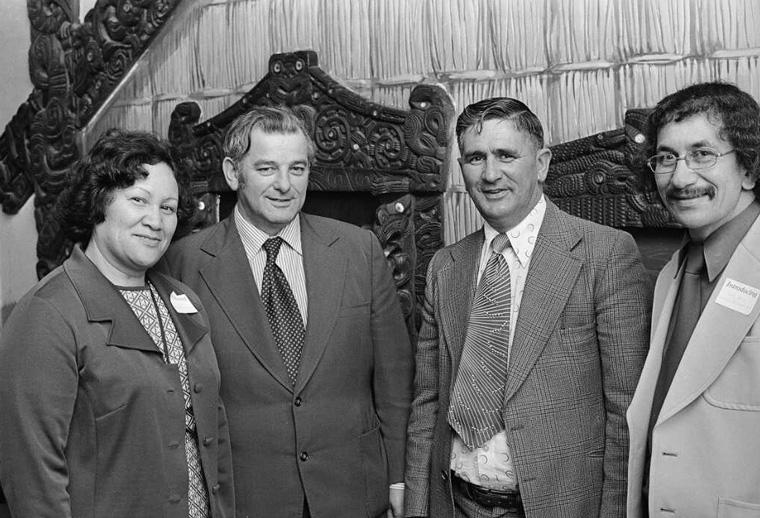New Zealand Māori Council

Alexander Turnbull Library, Reference: EP/1977/4485/13-F.
Around the country local Māori organisations appoint people to District Māori Councils. These in turn appoint representatives to the New Zealand Māori Council.
The Council was established by the Māori Community Development Act 1962 and has wide-ranging powers to involve itself in all aspects of Māori well-being and race relations. However, it has no authority over iwi groups.
The Māori Council supported the WAI11 claim to the Waitangi Tribunal and remained active in promoting further gains for the Māori language, including a major case in 1992 that went to the Court of Appeal and then to the Privy Council in London seeking recognition of Māori and their language as broadcasting assets were privatised. This case led directly to the establishment of the Māori broadcasting funding agency, Te Māngai Pāho.
Sir Graham had been a member of the Waitangi Tribunal which heard the WAI11 claim, as had Sir Eddie Durie, a later Chair of the Council.